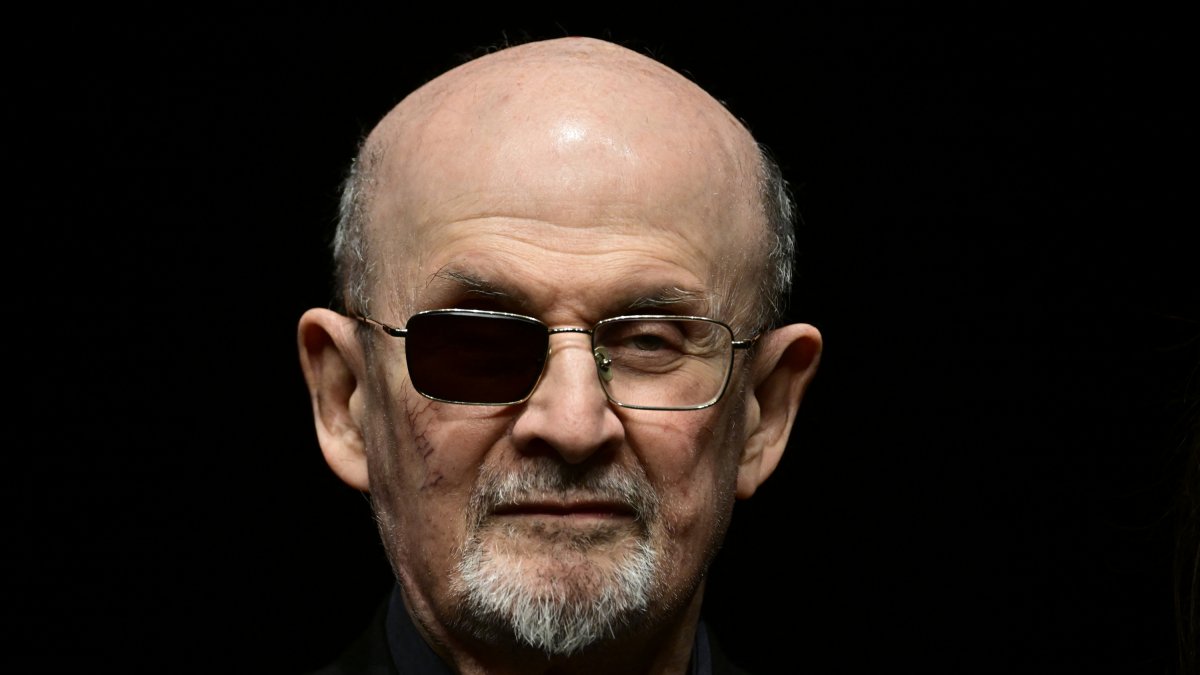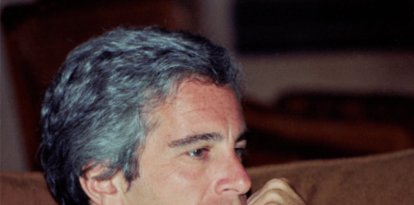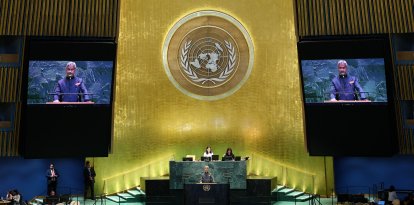Rushdie's fatwa is more alive than ever: The global jihad against the free West
It is remarkable how much effort our civilization has put into disguising or forgetting the common patterns and motives behind attacks like those suffered by the writer since 1988.

Salman Rushdie
On Nov. 2, 2004, Mohammed Bouyeri harassed, intercepted and decapitated filmmaker Theo van Gogh while the latter was riding his bicycle in Amsterdam. The artist's sin was filming Somali Islamic dissident Ayaan Hirsi Ali. Bouyeri had time to leave a message on van Gogh's body with death threats against Hirsi Ali carved with the homicidal knife.
Years later, on Jan. 7, 2015, minutes before noon, brothers Cherif and Saïd Kouachi, broke into the offices of the satirical magazine Charlie Hebdo, which had published illustrations of the prophet Muhammad, and shot the janitor, Frédéric Boisseau. They then forced cartoonist Corinne Rey to give them the security code to the newsroom and, upon arrival, shot policeman Franck Brinsolaro, assigned to protect editor Stéphane Charbonnier.
The attackers specifically sought to kill Charbonnier and cartoonists Jean Cabut, Georges Wolinski, Bernard Verlhac and Philippe Honoré. They also killed columnists Bernard Maris and Elsa Cayat, proofreader Mustapha Ourrad and journalist Michel Renaud, who was a guest. The Kouachi brothers managed to escape so successfully that they took time to kill policeman Ahmed Merabet, who was in custody. It was only on Jan. 9 that the police managed to close in on them. In the ensuing shootout, both brothers died, convinced of the justice of their actions.
While being pursued by authorities, the Kouachi brothers were in contact with Amedy Coulibaly, who on Jan. 8 killed policewoman Clarissa Jean-Philippe and took 15 hostages trying to negotiate the release of the brothers. Of the 15 captives, he killed four, before clashing with police and falling dead as well.
Some time later, on Oct. 16, 2020, Abdullakh Anzorov waited at the door of the College du Bois d'Aulne, about 20 miles from Paris, for class time to end and asked the children to point out teacher Samuel Paty. With a foot-long knife he decapitated him and posted the image of Paty's head on social media. The young and much-loved teacher Samuel would die for the sin of having taught, a few days earlier, a class on freedom of speech, and on that occasion speaking about the events that occurred during the Charlie Hebdo massacre.
Executions such as these, endorsed by Islamist fanatics, which have been counted by the hundreds for a long time, have already become naturalized. More than three decades ago, Iranian leader Ruhollah Khomeini issued a decree urging the assassination of writer Salman Rushdie for writing a work called "The Satanic Verses," which also referred to Muhammad.
Following this conviction, known as fetua or fatwa, a multimillion-dollar reward was offered to whoever carried out the sentence. This meant that Rushdie has since lived under the threat of assassination. On Friday, Aug. 12, 2022, Hadi Matar resolutely climbed onto a stage where Rushdie was speaking and stabbed him as many times as he could until those at the event stopped him. Rushdie survived the attack, so his death warrant still stands.
It is neither the first nor the last time that global jihad threatens the life and liberty of those who do not submit to its fanaticism. But what is remarkable is the effort our civilization has put into disguising or forgetting the common patterns and motives that link these attacks.
When the book "The Satanic Verses" was published in 1988, the attacks and burning of copies began in all parts of the world. Government bans followed. Khomeini's fatwa was made public from an Iranian radio station on Feb. 14, 1989: "I am informing all the brave Muslims of the world that the author of 'The Satanic Verses,' a text written, edited and published against Islam, the prophet of Islam and the Qur'an, along with all the editors aware of its contents, are sentenced to death. I call upon all brave Muslims, wherever they are found in the world, to kill them without delay, so that no one will dare to insult the sacred beliefs of Muslims hereafter. And whoever dies for this cause will be a martyr, Allah willing. In the meantime, if anyone has access to the author of the book but is unable to carry out the execution, he should inform the people so that he [Rushdie] will be punished for his actions."
The consequences were immediate and the massacres were concatenated. The man who translated the book into Japanese was murdered, the one who translated it into Italian was stabbed and the one who translated it into Turkish suffered an attack that consisted of setting fire to a place, causing 37 people to die. Murderous fanaticism never stopped, even if diplomacy and cultural relativism insist on underestimating it or, in other cases, justifying it.
In 2021, a man was found with an assault rifle pointed at the house of Masih Alinejad an Iranian journalist who launched the "My Stealthy Freedom" page against the hijab mandate in which she invites Iranian women to post photographs with their hair on display. In Iran, since the 1979 Revolution, women are obliged to cover their hair.
The Iranian authorities ordered 10 years in prison for anyone who sends her photo to Alinejad, who also condemns the complicit silence of the West for those laws that seek her death for the crime of adorning her hair with a flower so that everyone can see it. Masih had to leave Iran to save her life and has been living in danger ever since. A New York court accused the Iranians of ordering her kidnapping and arrested Alireza Shavaroghi Farahani, Mahmoud Khazein, Kiya Sadeghi and Omid Noori, accused by the U.S. of being agents of Tehran's intelligence service.
The hell of these condemned and murdered people is due to the sin of writing, teaching, taking pictures, drawing and making films.
Almost all the work of George Orwell, emblematic critic of totalitarianism, was banned somewhere at some time. And for religious, sexual or ideological reasons, works such as "Lolita" by Nabokov, "The Catcher in the Rye" by Salinger, "Lady Chatterley's Lover" by Lawrence or "Tropic of Cancer" by Henry Miller were also banned. The history of censorship is infinite and shows that, in the long run, not only does it fail, but it mostly enhances that which it is intended to silence.
But in the short term, the damage is brutal. Khomeini's fatwa showed the global impunity of the jackals, and the way they settle their accounts with freedom of speech, as well as the ability to inspire monsters around the world. All people on this long list of fanatical murderers enjoyed the sweetness of freedom and tolerance, yet became so radicalized that they wanted to do away with the system that gave them shelter. There is no victimhood justification or way to metabolize this paradox.
In the short term, in the flesh of free and tolerant civilizations, the fatwa is laceratingly successful. Cartoonist Rénald Luzier of Charlie Hebdo magazine swore today that he would never again draw Muhammad. As if they had learned their lesson, the magazine's publication will no longer repeat the feat of drawing whatever they want on a whim, declared Laurent Sourisseau, the magazine's editor-in-chief. It makes sense, it is no life to live with a death sentence to be executed by fanatics around any corner.
Rushdie's own life became a drama of concealment and violence. At a literature event in India, a plot to assassinate him was thwarted in Mumbai that turned the event into a panic-stricken space filled with security forces. Rushdie decided not to subject attendees to imminent danger and did not attend. Wherever he went, there were armed personnel and armored cars for his personal transportation. This is how he has lived on a daily basis.
In a report made some time ago, Rushdie said, "I have the feeling that, if the attacks against 'The Satanic Verses' had happened today, these people [who supported it 30 years ago] would not have defended me and would have used the same arguments against me, accusing me of insulting an ethnic and cultural minority."
Rushdie was right. Not only has freedom of speech receded in recent decades, but support for the cause of anti-Western terrorism has grown, allowing that murderous madness to have a preponderant place in free societies.
This week, the elderly writer had to tell of the martyrdom of his stabbing at the trial taking place against his attacker. During his plea, he showed the empty eye socket that the terrorist smashed to satisfy the criminal laws we tolerate in the name of diversity. Salman Rushdie's broken body and life are the best metaphor for what global jihad has done to the world since the world gave up and decided not to fight it.
It is difficult to appeal to hope seeing how barbarism remains unpunished and reproduces itself. Attacks multiply and their indoctrinating effect is powerful. Everything that makes us what we are or what we defend, that tolerance with which we embrace diversity is threatened with death like Rushdie, like Alinejad. That capacity to express, which is the basic condition of a dignified life, is being decapitated as they decapitated Paty or van Gogh. These are not exaggerations, this is how millions of people live in the world and in more and more places, with more violence and more impunity.



























